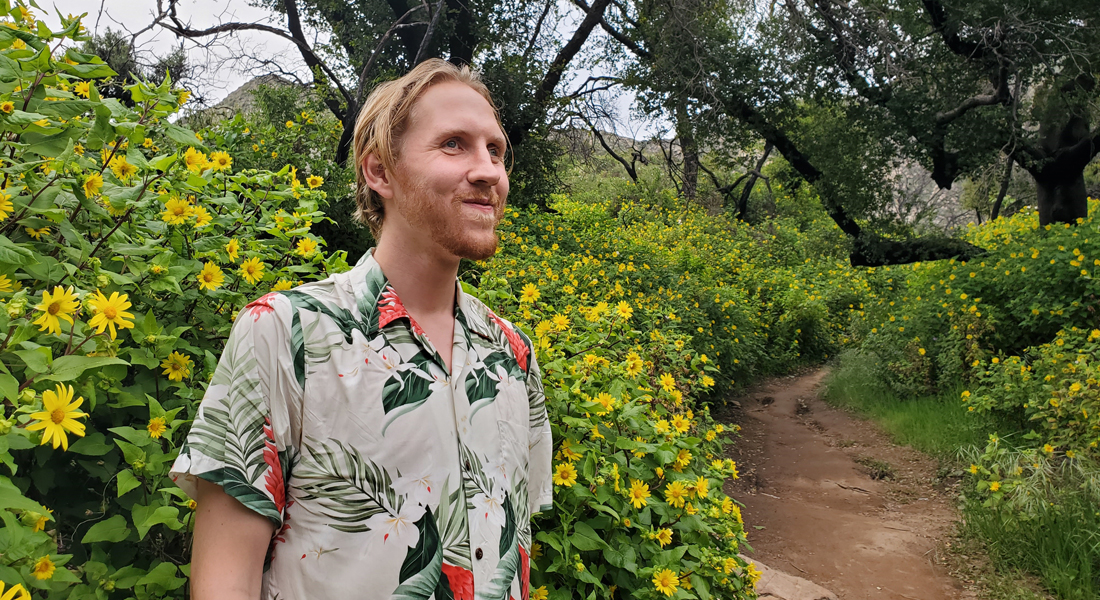How to turn your limitations into strengths when going abroad with a disability
Going abroad to another continent not knowing a single soul is never easy. It does not make it easier if you are visually impaired. We had a chat with psychology student Nicklas Aagaard about his experiences abroad at University of California, Santa Barbara in the spring semester 2020.
Hi Nicklas, welcome home! Let us just dive right in, how was your exchange experience in the US?
“It was of course strange to be abroad during a pandemic, but I was able to build a strong network over there despite of Corona. Some students were forced to leave and others chose to leave. I was of course sad to say goodbye to some of my good friends, but I was able to stay.”
What is the most important thing to say to others before they go abroad?
“Be thoughtful of your time. It is the most important thing you have. Do not push yourself to hard. Do not let your academic aspirations come in the way of your social life. It will be overwhelming. Nevertheless, it will be so meaningful that it will all be worth it. You can damn well do that, despite your limitations or obstacles. Know your own limitations – this helps you to find out what kind of help you should ask for. And there will always be someone that can help you."
What kind of help did you get?
“It’s been a long process.” Nicklas says. He pauses and thinks for a while.
”The first thing I did when I was accepted to UC Santa Barbara was to contact their Disability Office. I was immediately put in contact with a mobility instructor from their Disabled Student Program (DSP), who, a few days before the semester began, gave me a guided tour of the campus. We saw all my different classrooms and made routes on how to get from A to Z.”
Ups and downs: Why customized help is essential
“I had this experience with the language proficiency test. I could not get my dispensation and I was of course not able to take the standard test. So I got a lot of help from the International Educations office at UCPH and from UCEAP. We were able to create an alternative test. A hurdle like this could have prevented me from going abroad. The willingness of the universities made me wish to go abroad even more.”
There was also challenges. Nicklas explains what happened in situations where his dispensations from the disability office was not met in real life.
“The American school system is really bureaucratic. Because I had extra time to take some of my exams, some of them almost overlapped. Even though I informed the disability office of this issue, they were not able to help me.”
Nicklas explains how he sometimes received assignments with the questions being out of order or documents not properly scanned. It is these smaller incidents that sometimes made life annoying to Nicklas. He mentions,
“It is easy enough to find the support. However, it needs to live up to its promises when students really needs it.”
So much to share
“I am sorry if I am just rambling, I just have so much to say."
I can almost feel his positivity through the blurred zoom screen.
We have to stop the interview at some point, but it is difficult with the level of engagement that Nicklas possess. He badly wants to help other students, disability or not, to go abroad because of his own experience. He has grown as a person and as a student and one there is no doubt that Nicklas will keep on travelling in the future.

By Simone Hauskov & Kathrine Bruun Funch
